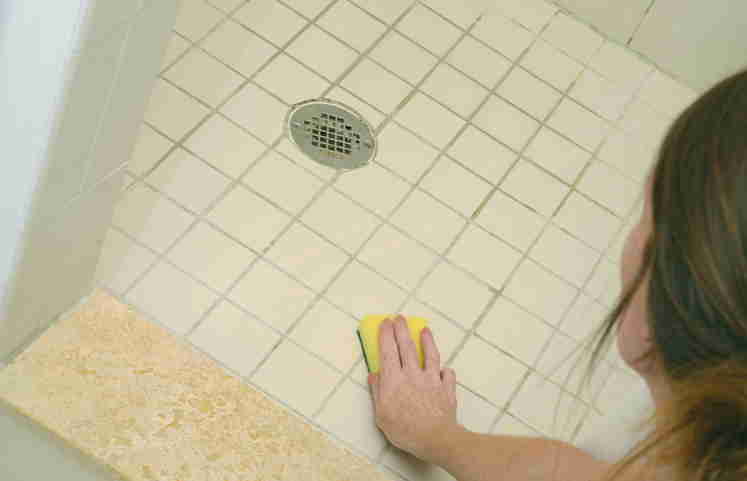Research has identified the two most germ-infested surfaces in homes as the shower curtain and shower floor, each home to approximately 16 million colony forming units. The same study found that while women clean their shower 4 times a month on average, men only do so 2.8 times in the same time period.
Those who don’t prioritise cleaning their shower very often will probably want to find ways of maintaining it in good condition for longer without any added effort; this isn’t as hard as difficult as it sounds!
If you want to keep your shower clean for longer so that you never end up dealing with build-ups of dirt and grime, keep reading and follow some of the tips and tricks we’ve put together below!
Tips and tricks:
How to Keep Shower Curtain Clean:
Those who have shower curtains will know how dirty these can get after just a few showers. Mildew is a huge problem and can be very difficult to wash or scrub off some shower curtains. In order to avoid this fungus, take whichever of the following steps applies to you:
- Don’t use a shower curtain with etched or raised patterns; these allow moisture to build up in certain areas, providing the perfect conditions for mildew to develop. A smooth curtain will be less likely to develop mildew because the water can glide down instead of becoming trapped in certain parts. Not only this, it will also be much easier to clean.
- Make sure your bathroom is properly ventilated during or right after you shower. Turning on your bathroom fan or opening a window will do away with the moisture and will prevent mildew from forming on your curtain.
- Get used to wiping your shower curtain after every shower. If you think of cleaning in general as something of a chore, perhaps doing it more often but in much shorter spells is the best choice for you (even though it might not seem so at first). If you simply take one minute to briefly wipe away the moisture on your shower curtain after every shower, you will avoid having to spend much more time scrubbing away at it after mildew and dirt has accumulated on it.
- Give your shower curtain a preventative mildew bath in 3 easy steps:
- Wash your shower curtain using the washing machine. Add the recommended amount of detergent as well as 250 mL of white vinegar to a normal wash cycle.
- If you have a tub, fill it with water and add 300 grams of salt. If not, fill a container big enough to fit your shower curtain with water, add the salt, and submerge the curtain fully for 3 to 5 hours.
- After it has soaked for long enough, take it out and air-dry it. The salt will create a barrier preventing mildew from forming as easily.

Photo credit: Beth Swanson/Shutterstock
How to Keep a Shower Head Clean:
Shower heads can get very dirty and will often become covered in limescale if you live in an area with hard water. There isn’t much you can do to prevent the build up of limescale if you’re living in an area with high mineral concentration water. The best thing you can do is be proactive about your showerhead cleaning regimen and tackle small build-ups before they become unmanageable.
How to Keep Shower Floor or Bathing Tub Clean:
Those who want to keep their shower clean for longer with minimal work will not be pleased to find out that this is practically impossible. Because this is one of the places in your house which suffers from the highest concentrations of bacteria, you will need to clean it as often as possible.
What you could do in order to prevent your shower floor from getting very dirty is have a brush and some disinfectant by your shower at all times. After every shower, or once every few days, you can:
- Fill your shower room or bath with a thin layer of disinfectant or specialised cleaning solution and leave it for a few minutes
- Drain the disinfectant or cleaner and then rise with water
- If you notice any lingering dirt, you can quickly take care of it with a brush.
By doing a bit of work every day you will never have to spend hours cleaning and scrubbing away at difficult to deal with limescale, grime, or dirty build-ups. Furthermore, this will also help if you’re having issues with bad smells coming from your drains. However, for the best results in this area, we recommend checking out our How to Get Rid of Drain Odour guide.

Photo credit: Oleksandr Nagaiets/Shutterstock
Extra Tips:
Having a stash of both disinfecting wipes and dryer sheets for quick cleaning cycles is generally better than waiting for the bathroom to get dirty enough for you to have to bring out the vacuum and other larger cleaning utensils.
Disinfecting wipes can help keep your shower clean as they can be used to wipe off any soap or other marks which remain on the walls after you’ve showered. Of course, you can also find use for them in other parts of the bathroom, your shower isn’t the only one that can benefit from a steady supply of these.
Dryer sheets are also useful for picking up and throwing away dirty build-ups and especially dust bunnies.
If you don’t have a shower cabin, coating your shower walls with a protective layer will guard them against marks, dirt, as well as mildew and other forms of mould which are very common in such humid environments.
Looking for further pointers?
If you enjoyed the above advice but would like to know more about how to clean your bathroom, check out our 22 Bathroom Cleaning Hacks that will Change your Life! If your shower enclosure is too dirty and too worn for you to use anymore, we’ve written an extremely helpful Buying a Shower Enclosure Guide which you can consult for the best results.
Photo credit: Quinn Martin / Shutterstock
